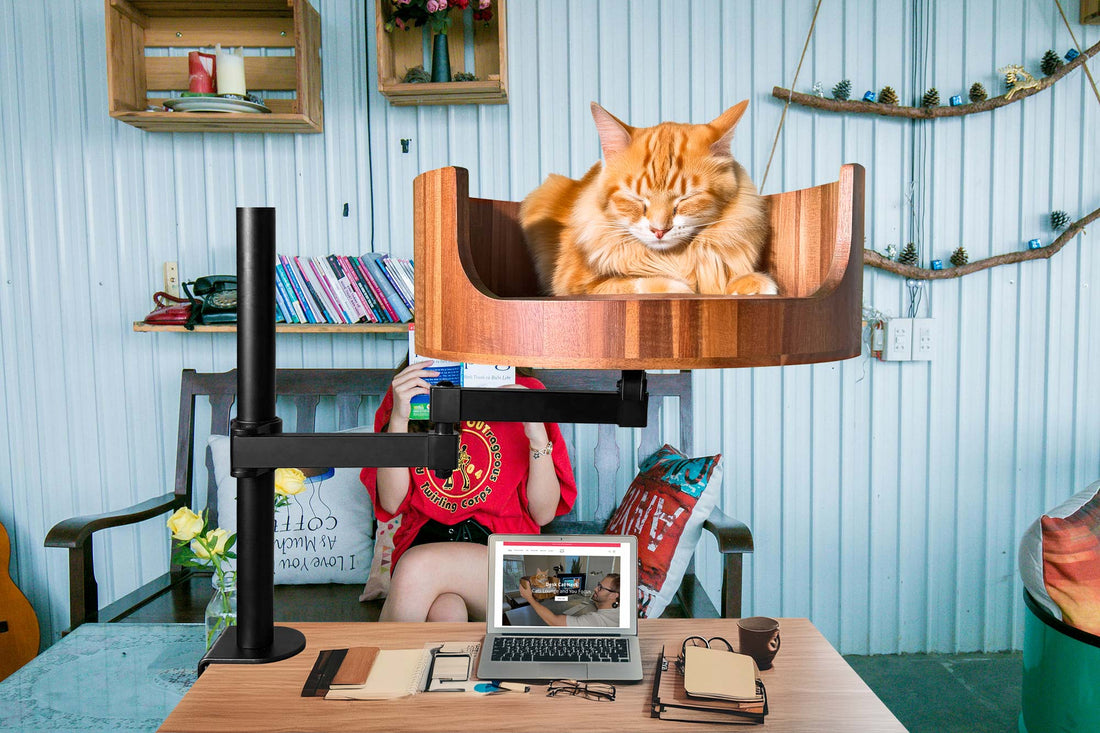
Why Does My Cat Like to Chew Plastic? Understanding Behavior
Share
If you've ever caught your feline friend chewing on plastic, you're not alone. Cats are notorious for their strange behavior, and chewing on plastic is a common quirk that leaves many pet owners scratching their heads. In this article, we will delve into the fascinating world of cat behavior to unpack why your furry companion might have a penchant for nibbling on plastic.
From plastic bags to cling wrap, cats seem to have an insatiable desire to sink their teeth into anything made of plastic. But why do they do it? We will explore the possible reasons behind this behavior, such as boredom, anxiety, or even a dietary deficiency. By understanding the root cause of your cat's plastic-chewing habit, you can take proactive steps to address it and ensure your feline friend stays happy and healthy. Stay tuned as we unravel the mystery behind this peculiar behavior and provide valuable insights into your cat's mind.
1. Cats chewing on plastic may be due to pica, a behavior disorder linked to nutritional deficiencies or boredom.
2. Providing interactive toys, stimulating environments, and proper nutrition can help deter cats from chewing on plastic.
3. Monitor your cat's behavior and seek veterinary advice if plastic ingestion becomes frequent or excessive.
4. Avoid leaving plastic bags or packaging materials within reach of your cat to prevent accidental ingestion.
5. Understanding the reasons behind your cat's plastic-chewing behavior can lead to better management and a happier, healthier feline companion.
Reasons Cats Chew on Plastic
There are several reasons why cats may be drawn to chewing on plastic. One common explanation is that cats are attracted to the texture of plastic, finding it satisfying to chew on. Additionally, cats have a natural instinct to explore their environment and chewing on objects, including plastic, is a way for them to investigate and engage with their surroundings. Some cats may also chew on plastic due to stress or anxiety, using it as a coping mechanism to alleviate their emotions.
Risks of Plastic Chewing for Cats
While chewing on plastic may seem harmless, it can actually pose several risks to cats. One major concern is the potential for cats to ingest plastic, which can lead to digestive issues, blockages, and other health problems. Sharp edges or small pieces of plastic can also cause injuries to a cat's mouth, throat, or digestive tract. In addition, certain types of plastic may contain chemicals or toxins that are harmful to cats if ingested.
Preventing and Managing Plastic Chewing Behavior
If your cat has a tendency to chew on plastic, there are several steps you can take to prevent and manage this behavior. Start by removing any plastic objects or materials that your cat may be tempted to chew on, such as plastic bags, packaging, or cords. Provide alternative safe and engaging toys or objects for your cat to chew on, such as chew toys or dental treats. It is also important to ensure that your cat's environment is enriched with plenty of mental and physical stimulation to help redirect their energy away from chewing on plastic. If the behavior persists or becomes a concern, consult with your veterinarian or a behaviorist for additional guidance and support.
Frequently Asked Questions
Why does my cat like to chew plastic?
Cats may chew on plastic for a variety of reasons, including boredom, stress, dental issues, or simply out of curiosity. Some cats also enjoy the texture or taste of certain types of plastic. It is important to monitor your cat's chewing behavior and provide appropriate alternatives to satisfy their chewing instincts.
Is chewing on plastic harmful to my cat?
Chewing on plastic can be dangerous for cats, as it can lead to ingestion of pieces that may pose a choking hazard or cause intestinal blockages. Ingesting plastic can also be toxic to cats if the material contains harmful chemicals. It is important to discourage this behavior and provide safe alternatives for your cat to chew on.
How can I prevent my cat from chewing on plastic?
To prevent your cat from chewing on plastic, you can try providing them with appropriate chew toys or treats to satisfy their urge to chew. Additionally, you can try using bitter-tasting sprays or deterrents on plastic items to discourage your cat from chewing on them. It is also important to keep plastic items out of your cat's reach to eliminate the temptation.
Will using a Desk Cat Nest help prevent my cat from chewing on plastic?
While a Desk Cat Nest may provide a comfortable and safe place for your cat to rest and play, it may not necessarily prevent them from chewing on plastic. It is important to address the root cause of your cat's chewing behavior and provide appropriate alternatives to keep them entertained and satisfied.
In conclusion, it is clear that chewing on plastic can be a dangerous habit for cats, but providing them with a Desk Cat Bed can help redirect their attention and provide a safe alternative. The sturdy construction and comfortable cushioning of the Desk Cat Bed make it a valuable choice for cat owners seeking to address their pet's plastic chewing behavior. By giving your cat a designated space to relax and play, you can help prevent them from ingesting harmful materials and improve their overall well-being. Say goodbye to plastic chewing worries and upgrade to a Desk Cat Bed for your furry friend today.



















































